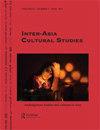Ambivalence of entertainment: the Cold War and pro-communist Mandarin cinema
IF 0.4
4区 社会学
Q4 ANTHROPOLOGY
引用次数: 0
Abstract
ABSTRACTColonial Hong Kong was a transregional hub of Cold War ideological confrontation. The United States and its Chinese ally, Chiang Kai-shek’s Taiwan, struggled with Beijing for the hearts of overseas Chinese in Southeast Asia and around the world. Pro-Communist émigré cinema in the mid-twentieth century was a prime cultural manifestation of this Cold War contest. After an initial period of radicalization and antagonism, the pro-Communist studios in Hong Kong gradually shifted to a moderate approach whose goal was not to undermine British colonial rule or espouse revolutionary ideologies. Rather, the new strategy was one of flexibility and restraint that aimed to maintain a strategic presence in the local film industry and serve as a point of contact for overseas Chinese. Later, with the emergence of two pro-Free China giant studios, Motion Pictures & General Investment Co. Ltd. and Shaw Brothers, the cinematic ecosystem in Hong Kong was significantly altered. In order to hold on to their market presence in an increasingly more competitive environment, pro-Communist film companies embraced a more entertainment-oriented ethos and experimented with various popular genres, while struggling to remain truthful to their ideal of “guiding people to do good.” With in-depth analysis of two popular films by Zhu Shilin, The Dividing Wall (Yibang zhi ge) and Sweet as Honey (Tiantian mimi), this essay seeks to historicize the ways in which the Beijing-sponsored film establishment in 1950s Hong Kong negotiated and balanced a changing set of political, ideological, and commercial interests in pursuit of its strategic mission.KEYWORDS: Cinematic ecosystemcold warmarch first incidentZhu ShilinChang-Feng-Xin Special termsTableDownload CSVDisplay TableNotes1 Box-office statistics from 1950s Hong Kong are hard to come by, but the limited evidence we have does indicate the market success of “Patriotic” films. In 1951, for instance, Li Pingqian’s A Night-Time Wife (Jin hun ji), a Great Wall production, was the highest grossing Mandarin-language film in Hong Kong, followed by three productions—Zhu Shilin’s Should They Marry? (Wu jiaqi) and Flower Girl (Hua guniang), and Wang Weiyi’s The Fiery Phoenix (Huo fenghuang)—by Loon-Ma and Wushi niandai, the two companies that would merge to become Feng Huang (“Yi jiu wu yi nian” 1952). Similarly, three films by Great Wall—Yue Feng’s Modern Red Chamber Dream (Xin honglou meng),Tao Qin’s Father Marries Again (Yi jia chun), and Li Pingqian’s Honeymoon (Miyue)—held the top-grossing spots in 1952, while Zhu Shilin’s The Dividing Wall was at the sixth place (Wang Citation1953). In 1955, Hu Xiaofeng’s Loves of the Youngsters (Da Ernü jing) came in third place, while topping the box-office chart was Sang Hu and Huang Sha’s The Romance of Liang Shanbo and Zhu Yingtai (Liang Shanbo yu Zhu Yingtai, 1954), a Shanghai Yue opera film from China whose immense success in Hong Kong, as we shall see, would pave the way for the trend of costume opera films pursued by both Shaw Brothers and “patriotic” studios (“Yi jiu wu wu nian” Citation1956).2 According to a report, The Battle of Love grossed more than HK$150,000 and broke the ten-year box-office record for Hong Kong Mandarin films (“Qingchang ru zhanchang” 1957).Additional informationNotes on contributorsPo-Shek FuPo-Shek Fu taught history and cinema studies at the University of Illinois Urbana-Champaign. His recent book is Hong Kong Media and Asia’s Cold War (Oxford, 2023).Man-Fung YipMan-Fung Yip is an Associate Professor of Film and Media Studies at the University of Oklahoma. He is the author of Martial Arts Cinema and Hong Kong Modernity: Aesthetics, Representation, Circulation (2017) and co-editor of The Cold War and Asian Cinemas (2020). His current research focuses on the cinematic Cold War in Asia and the Global South.娱乐的矛盾心理:冷战和亲共的国语电影
摘要殖民时期的香港是冷战意识形态对抗的跨区域中心。美国及其中国盟友蒋介石领导下的台湾与北京争夺东南亚和世界各地华侨华人的心。20世纪中期的亲共主义电影是这场冷战竞赛的主要文化表现。在最初的激进化和对抗之后,香港的亲共工作室逐渐转向温和的方式,其目标不是破坏英国的殖民统治,也不是支持革命的意识形态。相反,新策略是一种灵活和克制的策略,旨在保持在当地电影行业的战略地位,并作为海外华人的联络点。为了在竞争日益激烈的环境中保持自己的市场地位,亲共的电影公司接受了一种更以娱乐为导向的精神,并尝试了各种流行类型,同时努力保持对他们“引导人们做好事”的理想的忠诚。本文通过对朱士林的两部热门电影《一邦之歌》和《甜如蜜》的深入分析,试图将20世纪50年代北京支持的香港电影机构在追求其战略使命的过程中,是如何谈判和平衡不断变化的政治、意识形态和商业利益的。关键词:电影生态系统冷暖三月第一事件朱士林长风新特约术语1 50年代香港的票房数据很难获得,但我们有限的证据确实表明“爱国”电影在市场上取得了成功。例如,1951年,李萍茜的《夜猫子》,一部长城电影,是香港票房最高的国语电影,紧随其后的是朱士林的《他们应该结婚吗?》(吴佳琪)和卖花女(花娘娘),以及王维义的《火凤凰》(霍凤凰)——由龙妈和五氏念代创作,这两家公司后来合并成为凤凰(1952年)。同样,长城的三部电影——岳峰的《现代红楼梦》、陶秦的《父亲再嫁》和李萍茜的《芈月》——在1952年占据了票房冠军,而朱士林的《隔墙》排在第六位(王引用1953)。据报道,《爱之战》票房超过15万港元,打破了香港国语电影10年来的票房纪录(1957年的《青肠如战肠》)。石富先生在伊利诺伊大学香槟分校教授历史和电影研究。他最近的著作是《香港传媒与亚洲冷战》(牛津,2023)。叶文锋(Man-Fung YipMan-Fung Yip),俄克拉荷马大学电影与媒体研究副教授。他是《武术电影与香港现代性:美学、表现、流通》(2017)的作者,也是《冷战与亚洲电影》(2020)的联合主编。他目前的研究重点是亚洲和全球南方的电影冷战。
本文章由计算机程序翻译,如有差异,请以英文原文为准。
求助全文
约1分钟内获得全文
求助全文
来源期刊

Inter-Asia Cultural Studies
Multiple-
CiteScore
0.90
自引率
20.00%
发文量
22
期刊介绍:
The cultural question is among the most important yet difficult subjects facing inter-Asia today. Throughout the 20th century, worldwide competition over capital, colonial history, and the Cold War has jeopardized interactions among cultures. Globalization of technology, regionalization of economy and the end of the Cold War have opened up a unique opportunity for cultural exchanges to take place. In response to global cultural changes, cultural studies has emerged internationally as an energetic field of scholarship. Inter-Asia Cultural Studies gives a long overdue voice, throughout the global intellectual community, to those concerned with inter-Asia processes.
 求助内容:
求助内容: 应助结果提醒方式:
应助结果提醒方式:


